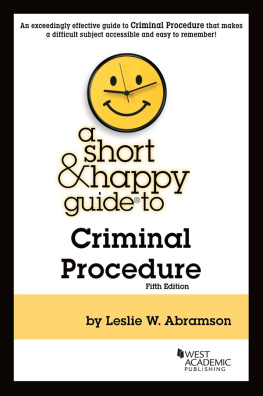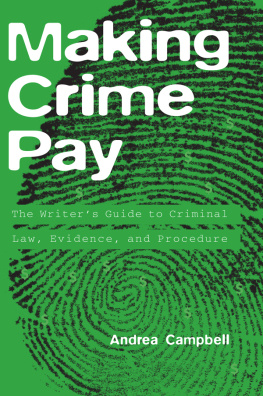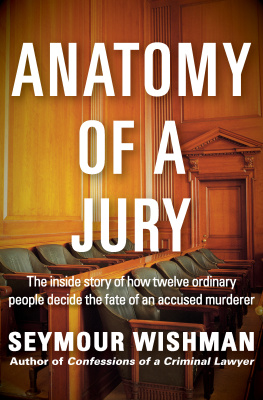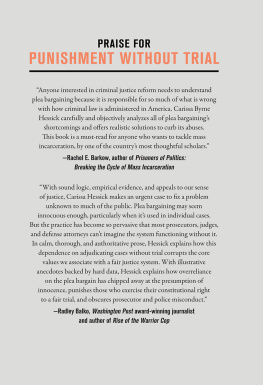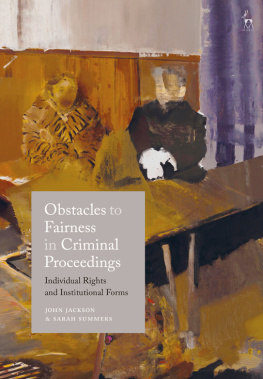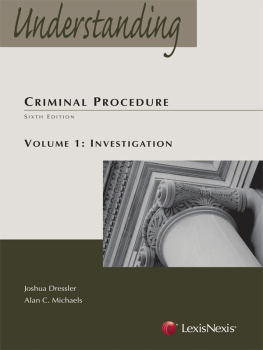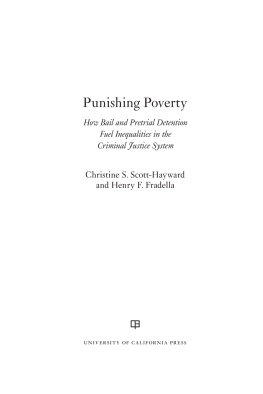West Academic Publishings Emeritus Advisory Board
Jesse H. Choper
Professor of Law and Dean Emeritus
University of California, Berkeley
Yale Kamisar
Professor of Law Emeritus, University of San Diego
Professor of Law Emeritus, University of Michigan
Mary Kay Kane
Late Professor of Law, Chancellor and Dean Emeritus
University of California, Hastings College of the Law
Larry D. Kramer
President, William and Flora Hewlett Foundation
James J. White
Robert A. Sullivan Emeritus Professor of Law
University of Michigan
West Academic Publishings Law School Advisory Board
Joshua Dressler
Distinguished University Professor Emeritus
Michael E. Moritz College of Law, The Ohio State University
Meredith J. Duncan
Professor of Law
University of Houston Law Center
Rene McDonald Hutchins
Dean and Joseph L. Rauh, Jr. Chair of Public Interest Law
University of the District of Columbia David A. Clarke School of Law
Renee Knake Jefferson
Joanne and Larry Doherty Chair in Legal Ethics &
Professor of Law, University of Houston Law Center
Orin S. Kerr
Professor of Law
University of California, Berkeley
Jonathan R. Macey
Professor of Law,
Yale Law School
Deborah Jones Merritt
Distinguished University Professor,
John Deaver Drinko/Baker & Hostetler Chair in Law
Michael E. Moritz College of Law, The Ohio State University
Arthur R. Miller
University Professor and Chief Justice Warren E. Burger Professor of
Constitutional Law and the Courts, New York University
Grant S. Nelson
Professor of Law Emeritus, Pepperdine University
Professor of Law Emeritus, University of California, Los Angeles
A. Benjamin Spencer
Dean & Chancellor Professor of Law
William & Mary Law School

Criminal Procedure
Fifth Edition
Leslie W. Abramson
Frost Brown Todd Professor of Law
Louis D. Brandeis School of Law
at the University of Louisville
A SHORT & HAPPY GUIDE SERIES

The publisher is not engaged in rendering legal or other professional advice, and this publication is not a substitute for the advice of an attorney. If you require legal or other expert advice, you should seek the services of a competent attorney or other professional.
a short & happy guide series is a trademark registered in the U.S. Patent and Trademark Office.
2015, 20172019 LEG, Inc. d/b/a West Academic
2021 LEG, Inc. d/b/a West Academic
444 Cedar Street, Suite 700
St. Paul, MN 55101
1-877-888-1330
Printed in the United States of America
ISBN: 978-1-63659-282-4
iii
Preface
Criminal Procedure is one of the most interesting law courses. As you were growing up, you watched news reports or television shows like Crime Stoppers which described or portrayed how the FBI or local police arrested suspects, searched their homes, interrogated them about their criminal conduct, and placed them in lineups. After a suspect was taken to court, further reports outlined whether she was released pending trial, indicted by a grand jury, pled guilty or asked for a jury trial, and sentenced to prison for a term of years.
The Short & Happy Guide to Criminal Procedure introduces you to the legal side of what you have heard and read about for years. Whether you use this book to cram for your criminal procedure final examination, or as a guide to follow in your role as a prosecutorial or public defender extern, you will learn the basics of how the criminal justice system functions in federal and state courts.
The first half of this book explores the constitutionality of police practices such as the exclusionary rule, arrests and stops of persons, searches of persons and vehicles, seizures of property, interrogation of suspects, and identification of suspects through lineups and showups.
The remainder of this book addresses the issues that arise after the federal or state prosecutor institutes criminal proceedings against the suspect. You will learn the constitutional and rule-based procedures relating to pretrial release, prosecutorial discretion, preliminary proceedings, grand jury practice, joinder of offenses and defendants, speedy trial, pretrial discovery of factual information, pretrial publicity, plea bargaining, jury trials, appeals, double jeopardy, and post-conviction remedies.
Each chapter explores one of the above topics, first defining the key terms for the topic. Each chapter then explains why its topic is important to the workings of the justice system and how it iv interrelates with other topics elsewhere in the book. The balance of each chapter discusses the foundational principles and shows you how they work, primarily through decisions of the United States Supreme Court or hypothetical situations.
The materials in this book are current through the 20202021 Term of the United States Supreme Court and the Federal Rules of Criminal Procedure through August, 2021. New editions of this book will be published approximately every three years, but readers can check www.shortandhappyguides.com for interim updates. Thanks to Kaylee Raymer, a 2020 graduate of the University of Louisville Brandeis School of Law, for her quality editorial assistance in the preparation of the Fourth edition.
LESLIE W. ABRAMSON
September 2021
v
Table of Contents
Totality of Circumstances to Decide Probable
Cause
vi
F. Seizures Pursuant to Search Warrant
Exigent Circumstances to Search the Suspects
Body
vii
C. The Fifth Amendment and Miranda
Rationales for Sixth Amendment Right to
Counsel
Exclusionary Rule Is Not a Per Se Rule of
Exclusion
viii
C. Good-Faith Exception to Exclusionary Rule
Exceptions to FOPT Analysis: Independent
Source
Exceptions to FOPT Analysis: Inevitable
Discovery
ix
D. Ineffective Assistance of Counsel
When Ineffective Assistance Claims Can Be
Brought
B. Eighth Amendment Prohibition Against Excessive
Bail
B. Constitutional Requirement for a Grand Jury to Indict
a Defendant
I. Fifth Amendment and Subpoenas: The Collective
Entity Doctrine
x
C. Motions to Dismiss Based on the Unconstitutionality of the Crime Charged
C. Double Jeopardy Implications for Joinder of
Offenses
F. Sixth Amendment Issues for the Joinder of
Defendants
C. Post-Charge Delay in Bringing the Defendant to
Trial
How Speedy Trial Rights Differ from Other
Rights
xi
f. Speedy Trial Rights for Incarcerated Defendants
g. Speedy Trial Rights Detach After
Conviction
C. Prosecutions Duty to Disclose Exculpatory
Evidence
Remedy for Violation of the Right to Public
Trial
xii
Chapter 17
xiii
Fines and Costs
D. Retrials After Defense Appeals and Implied
Acquittals
Summary Disposition of Habeas Corpus
Petition
xiv
H. Violations of Federal Law Only Are Cognizable
Factual Error: The State Decision Involved an Incorrect or Unreasonable Determination of
Facts
What a Petitioner Must Prove for Habeas
Relief
Actual Innocence to Overcome Procedural
Default
i
A Short & Happy Guide to
Criminal Procedure
Fifth Edition


